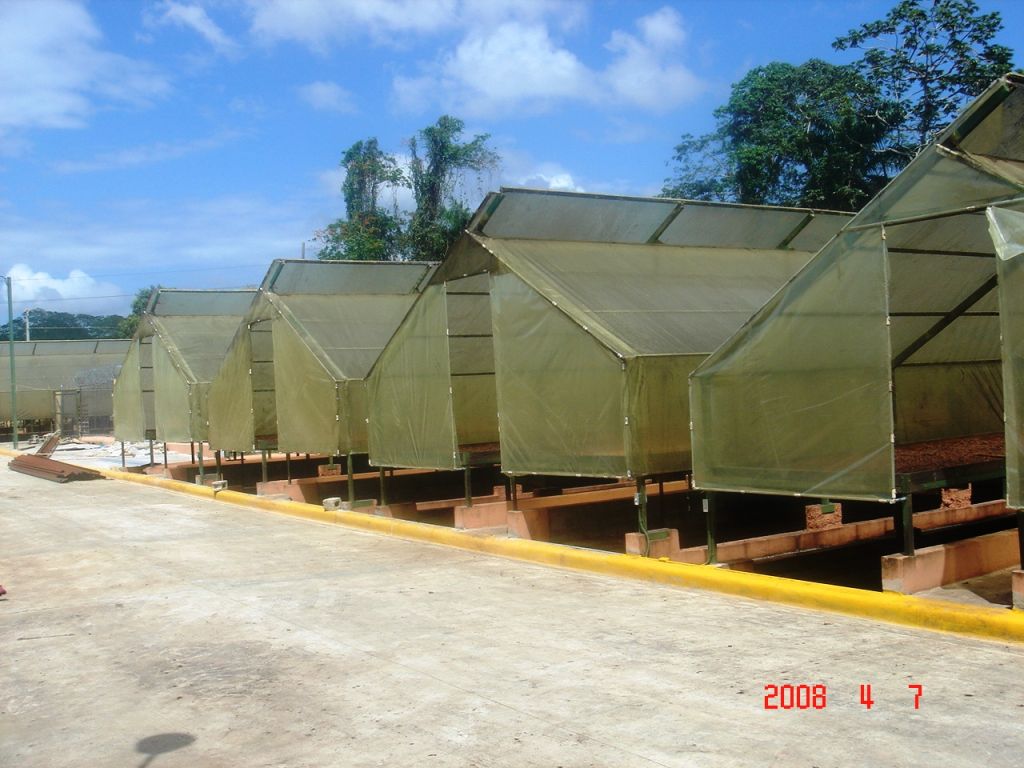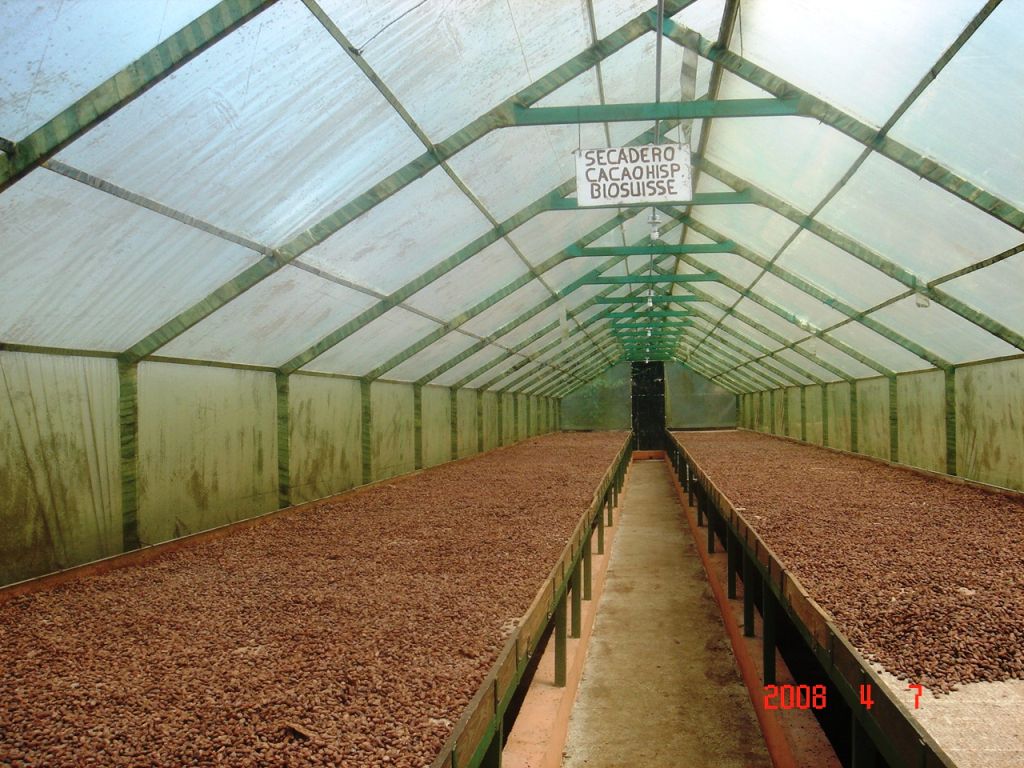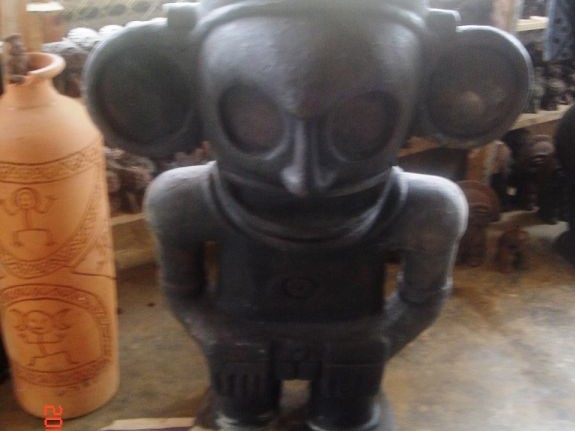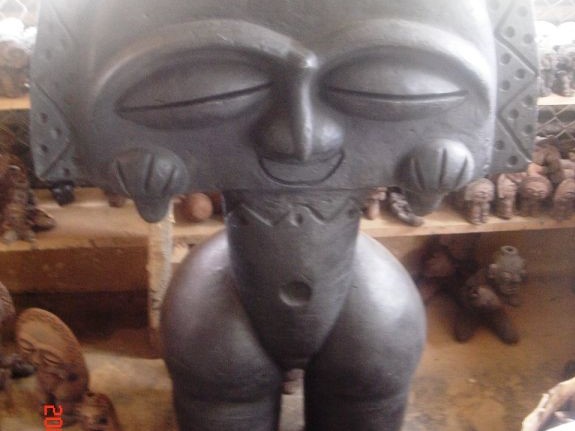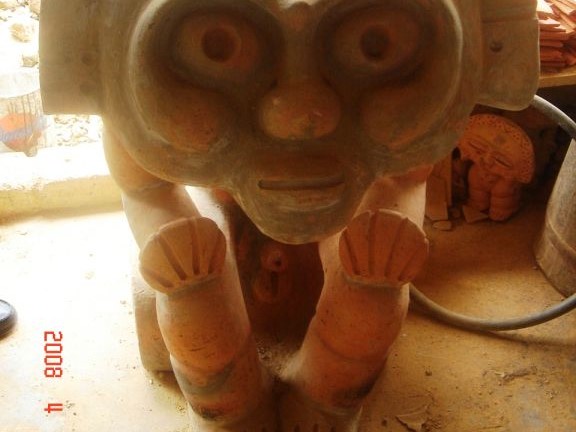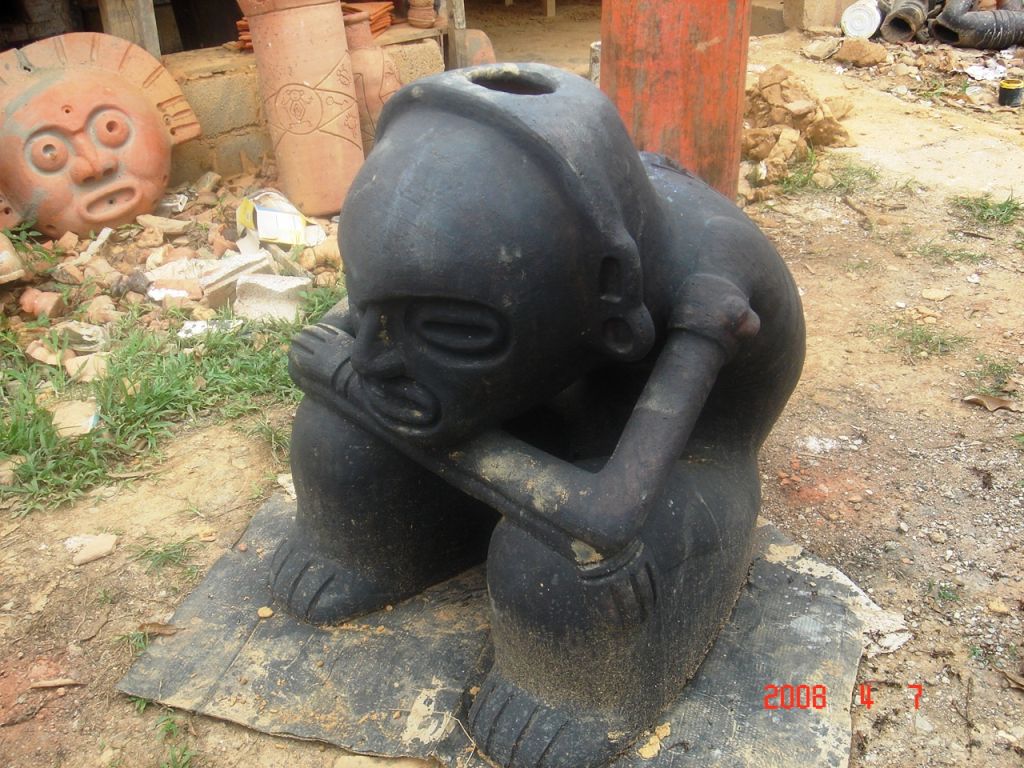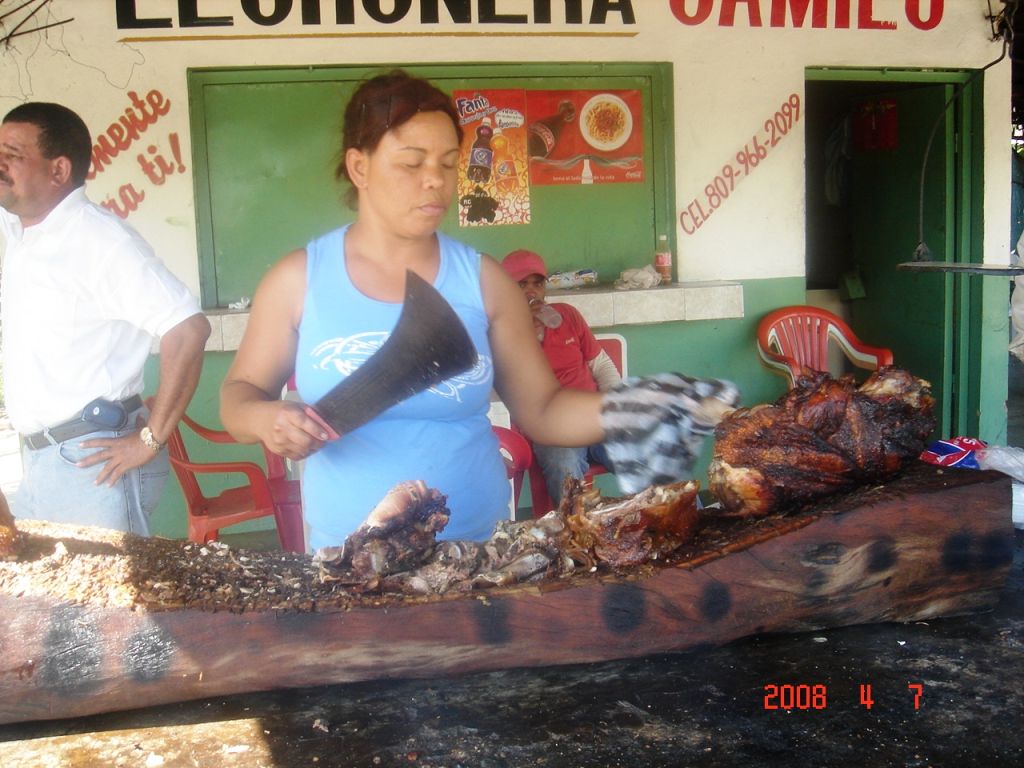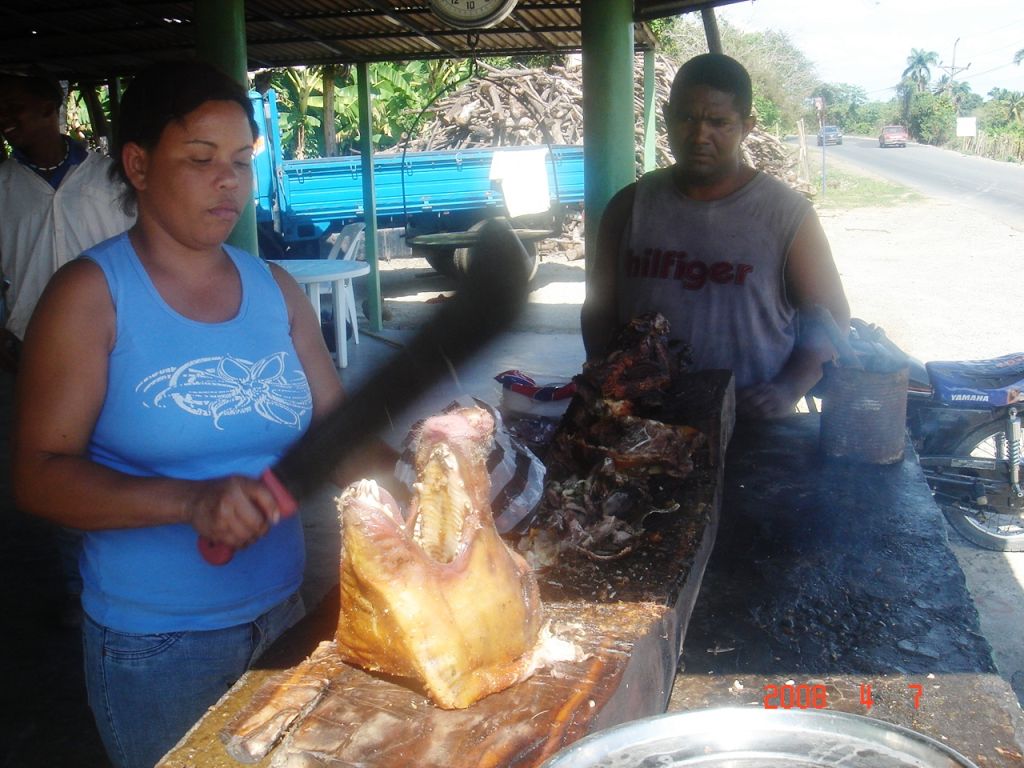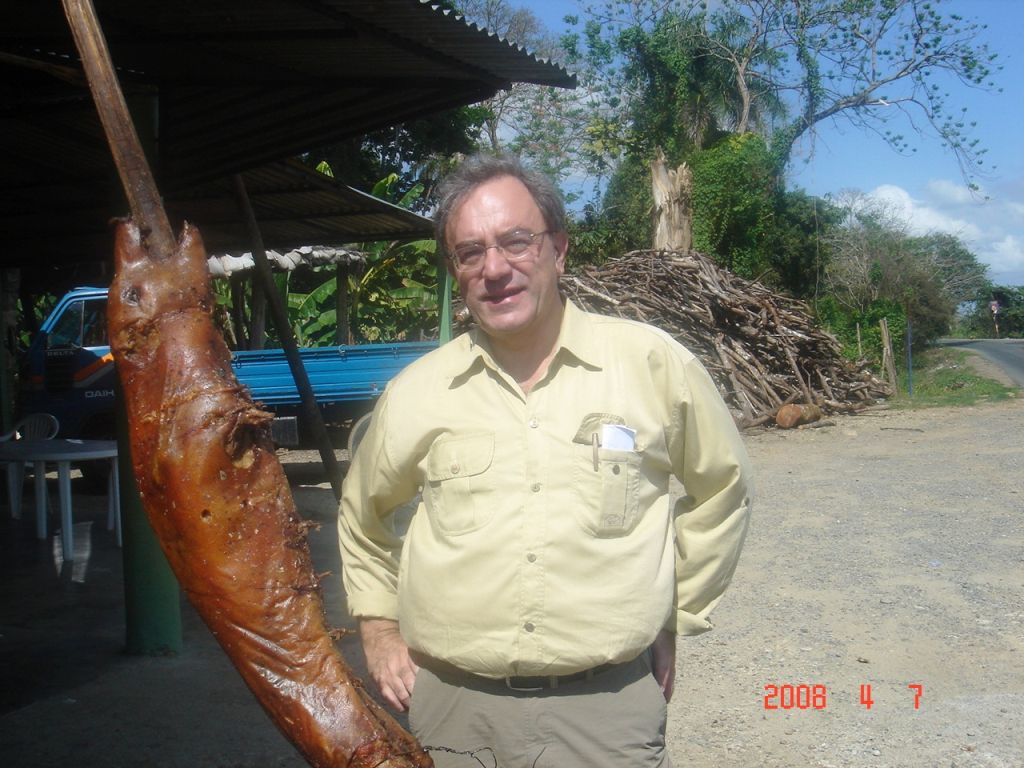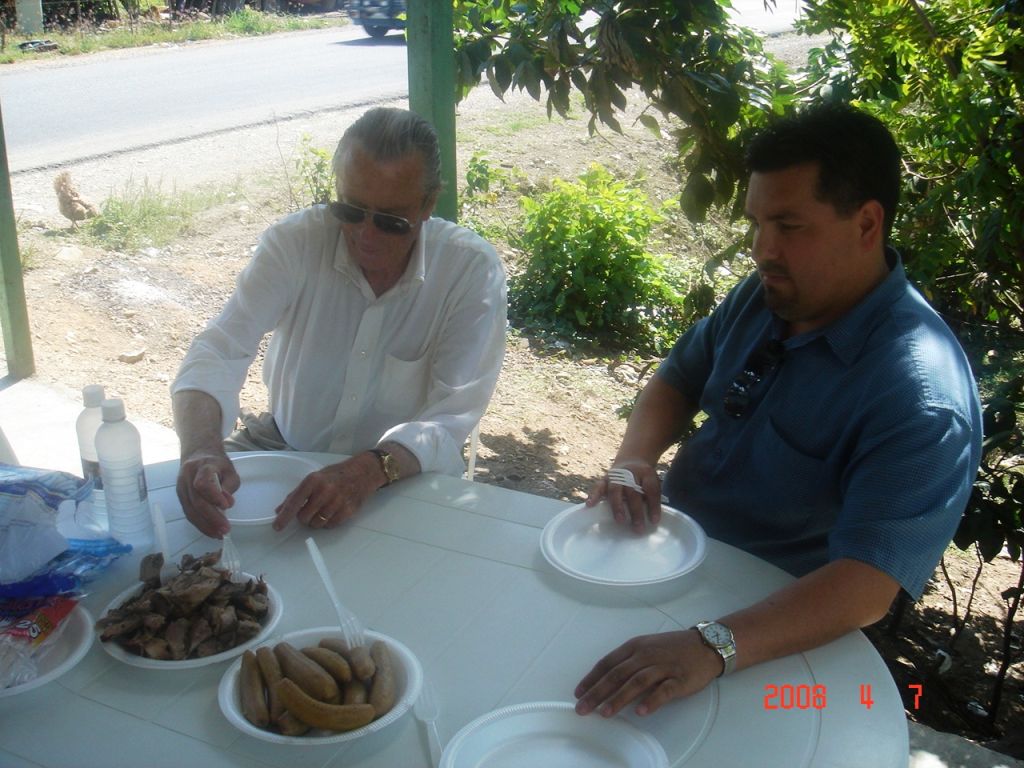The Dominican Republic
For centuries this country has exported cocoa beans notably to Spain and Mexico. But it was only in 1864 that cocoa came to be considered as a product of major importance in the countries exports.
Before hurricane George, production exceeded more than 50,000 tonnes. But unfortunately in 1998 the hurricane completely destroyed around 36% of the cultivated surface of the country.
Consequently, in 1998 and 1999, only around 26,000 tonnes of cocoa beans were produced.
However, tonnage is increasing regularly each year and has once more reached the previous level of around 50,000 tonnes.
The majority of the cocoa beans exported have the denomination Sanchez, that is to say unfermented. They are named Sanchez after the port in the north of the country.
It should be noted that unfermented cocoa beans are mainly exported to the United States where they use them to extract cocoa butter.
A much lower percentage, around10% of production, is fermented and sold under the name of Hispaniola, which is the former name of the island.
More than 40,000 families make a living from growing cocoa beans.
The majority of peasant farmers only own 3 hectares, which gives a yield of around one tonne of dry cocoa per year.
It is interesting to note that land surfaces are expressed in tareas (1 hectare = 2.2 tareas) which correspond to an area of land one peasant farmer can maintain (tarea = task).
In the Dominican Republic we visited cooperatives and well organised, independent companies with a real interest in controlling the traceability of each batch of fresh cocoa beans which was delivered, as well as an increasing concern to supply good quality and well fermented cocoa beans.
Fermentation generally lasts 5 days for varieties of cocoa such as the Trinitario.
The beans are dried on racks protected with plastic sheets.
During our journey we visited a pottery workshop which produces, amongst other things, giant statues.
We were so hungry we stopped to have our lunch on the roadside. Pork and cooked bananas. Funnily enough the bananas tasted rather like the potatoes we eat at home.
